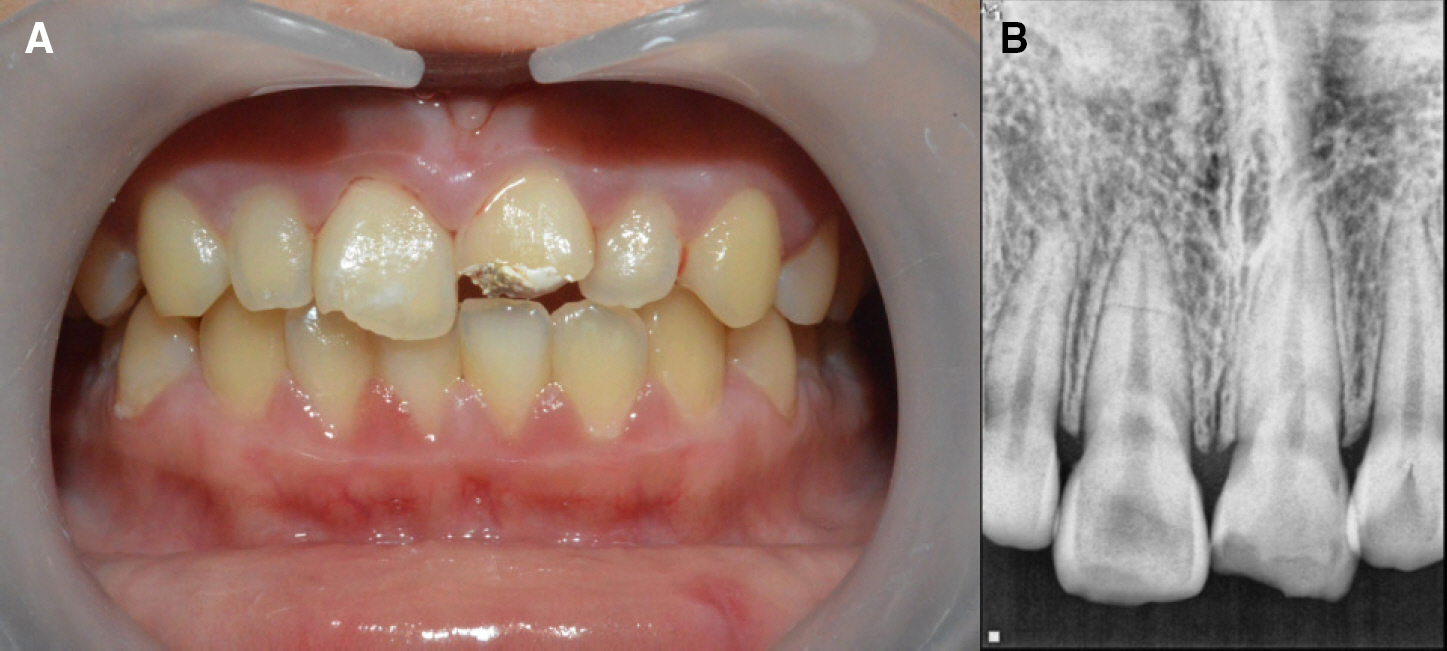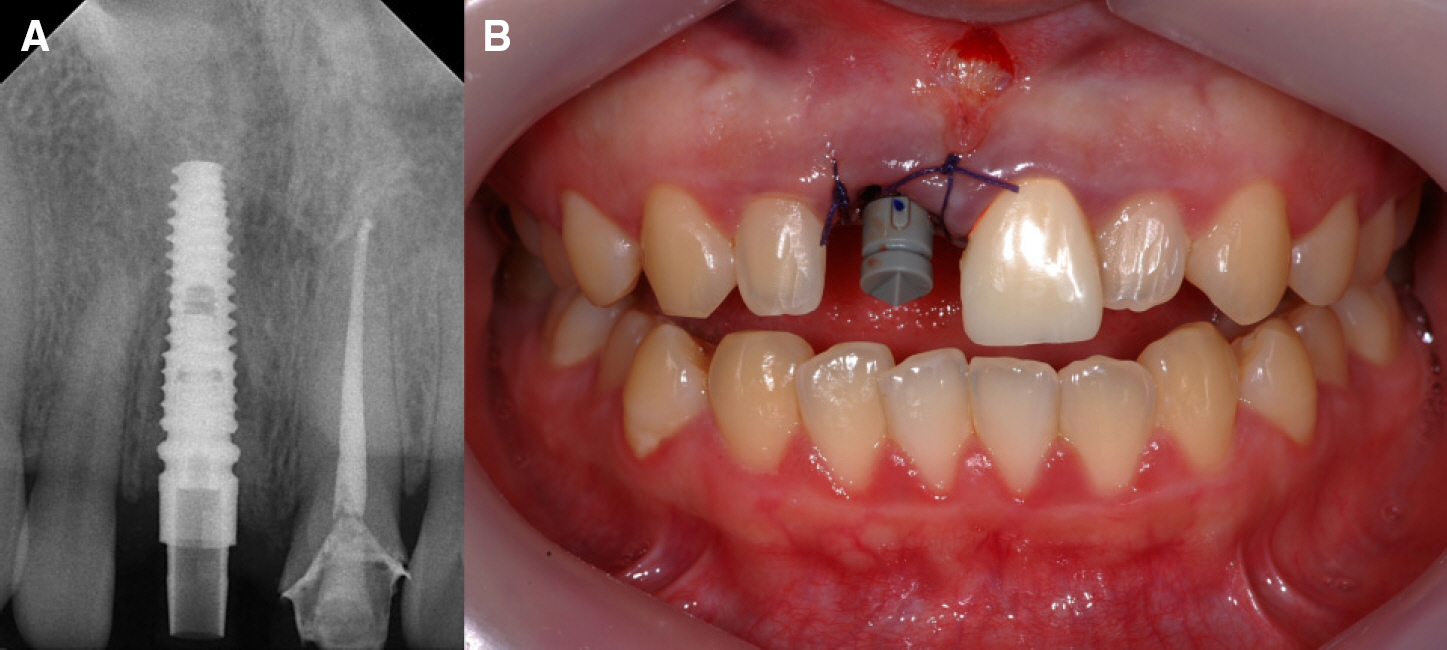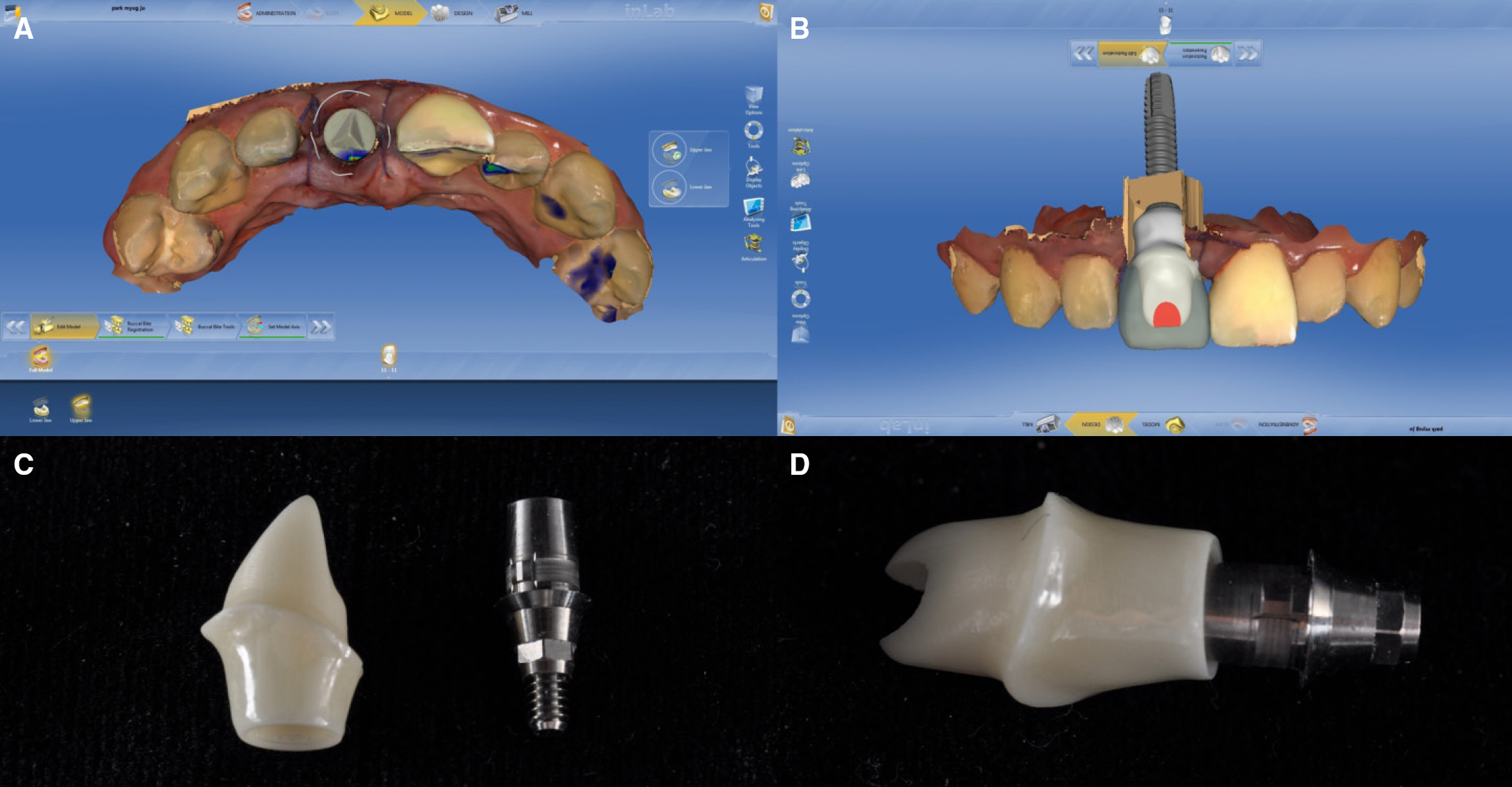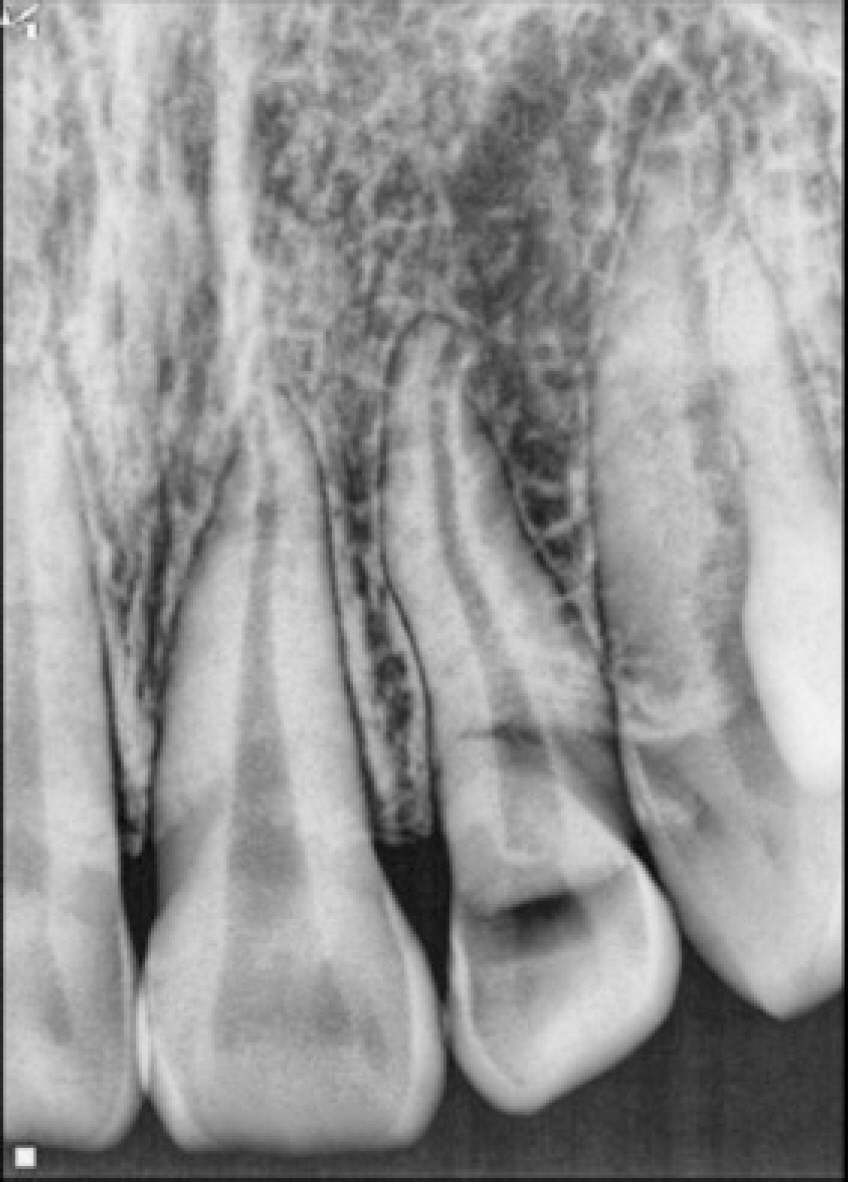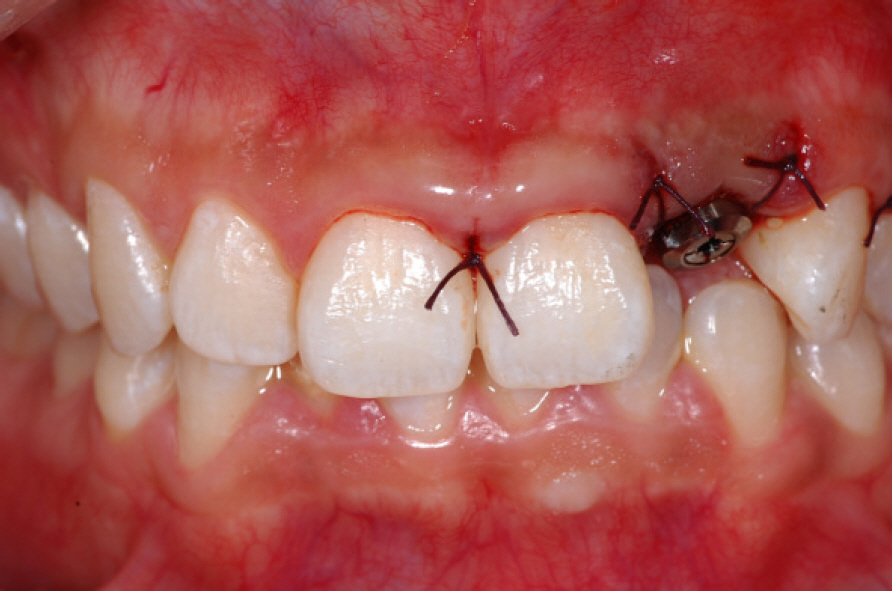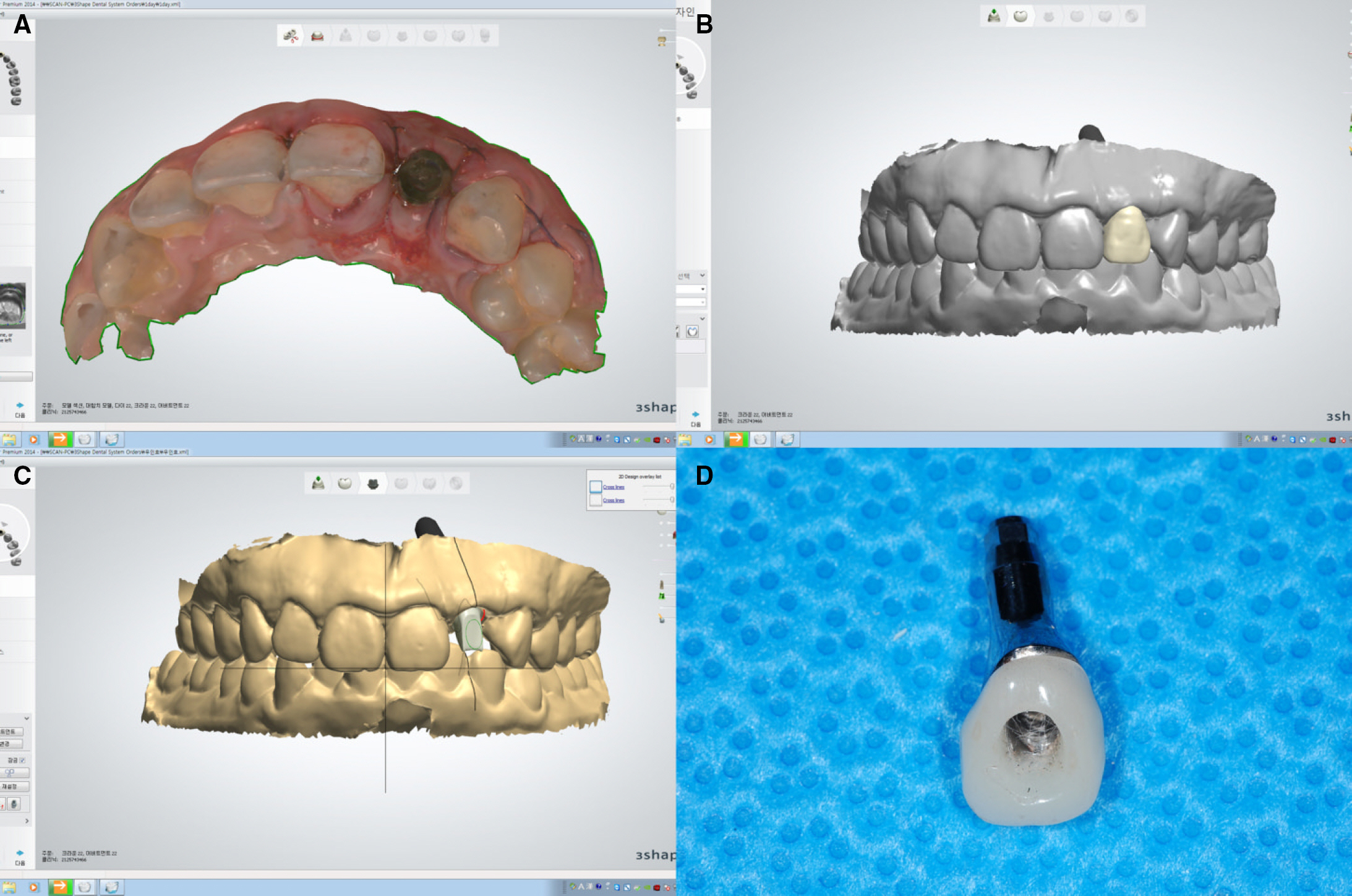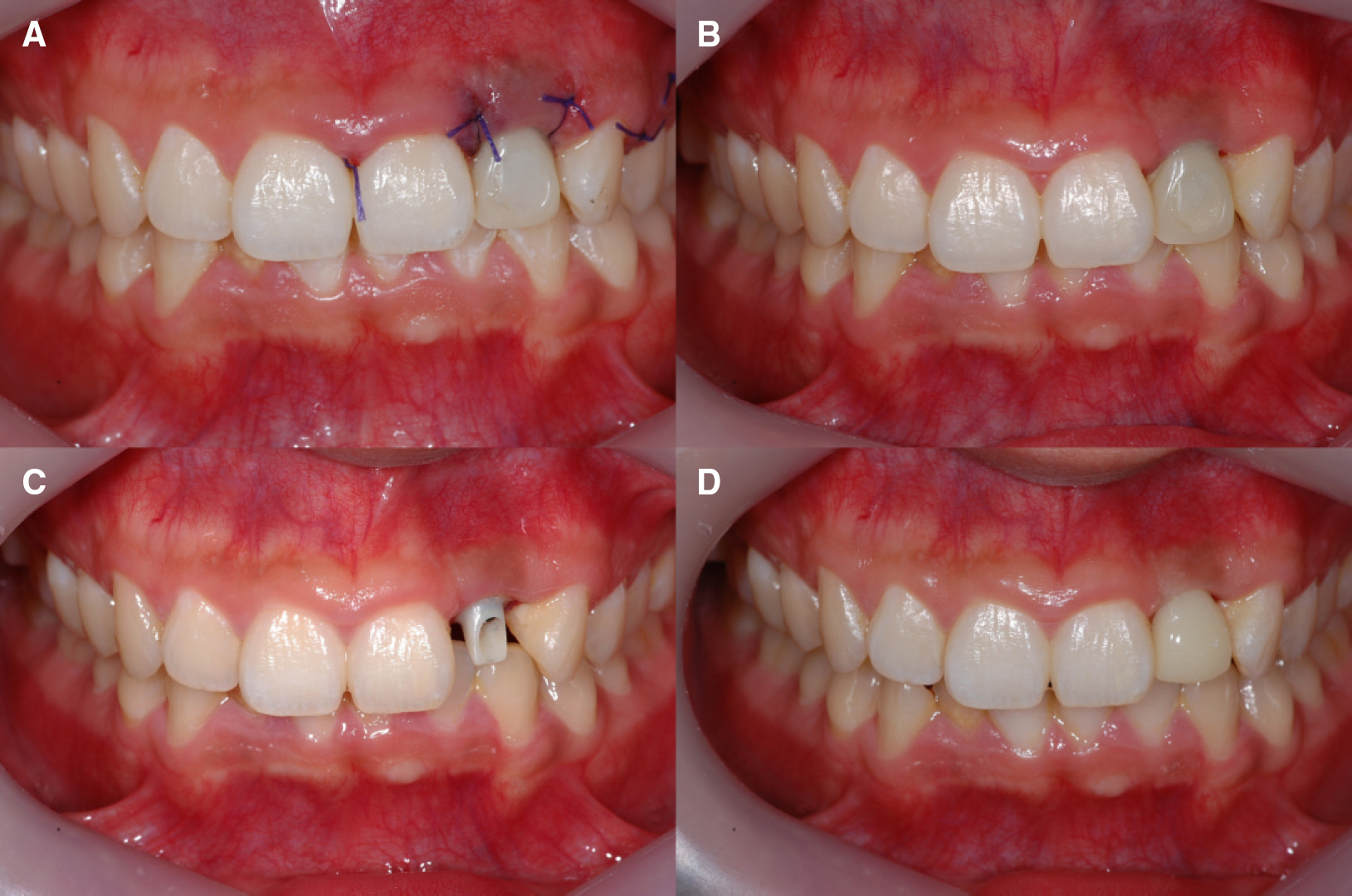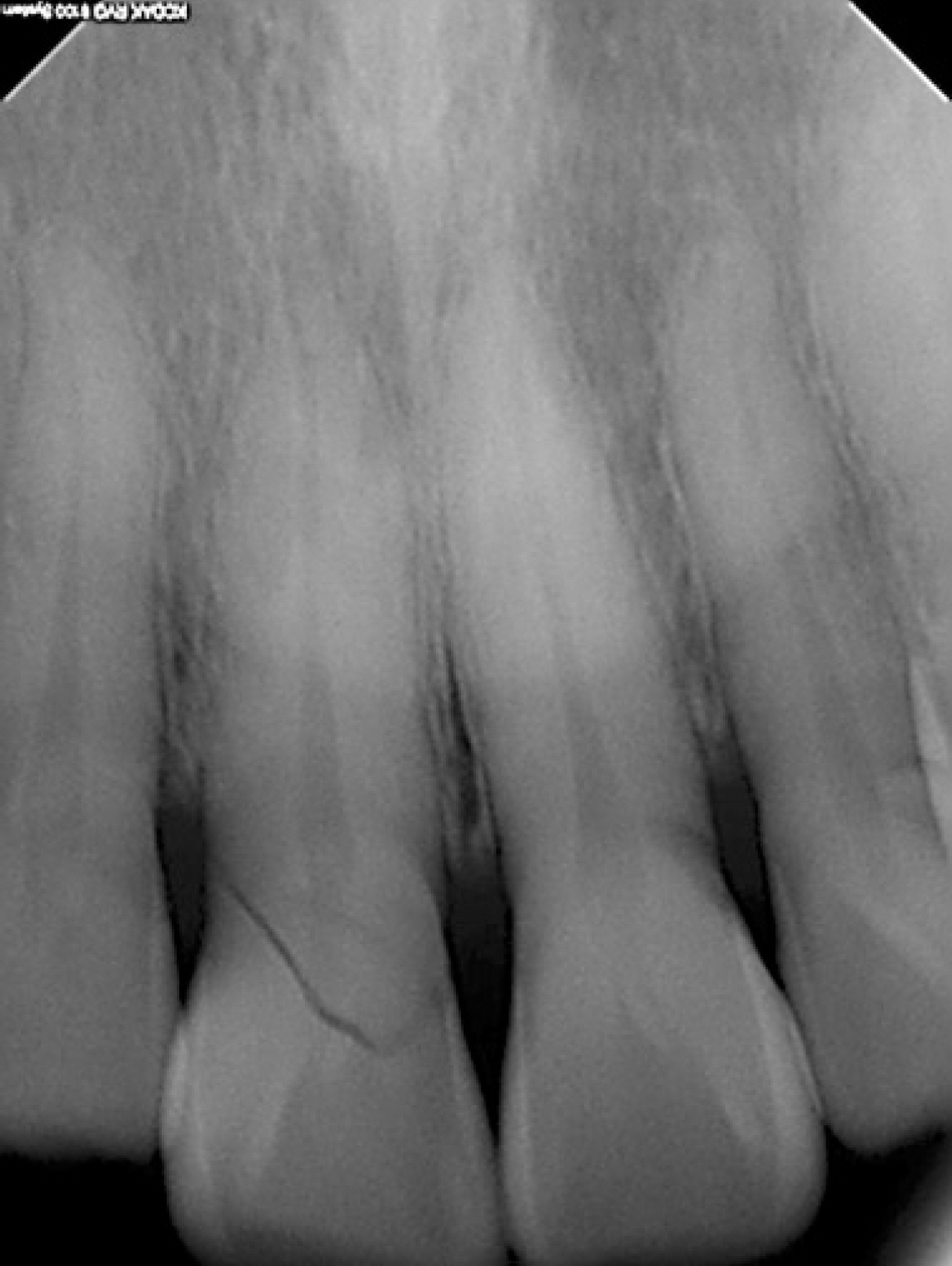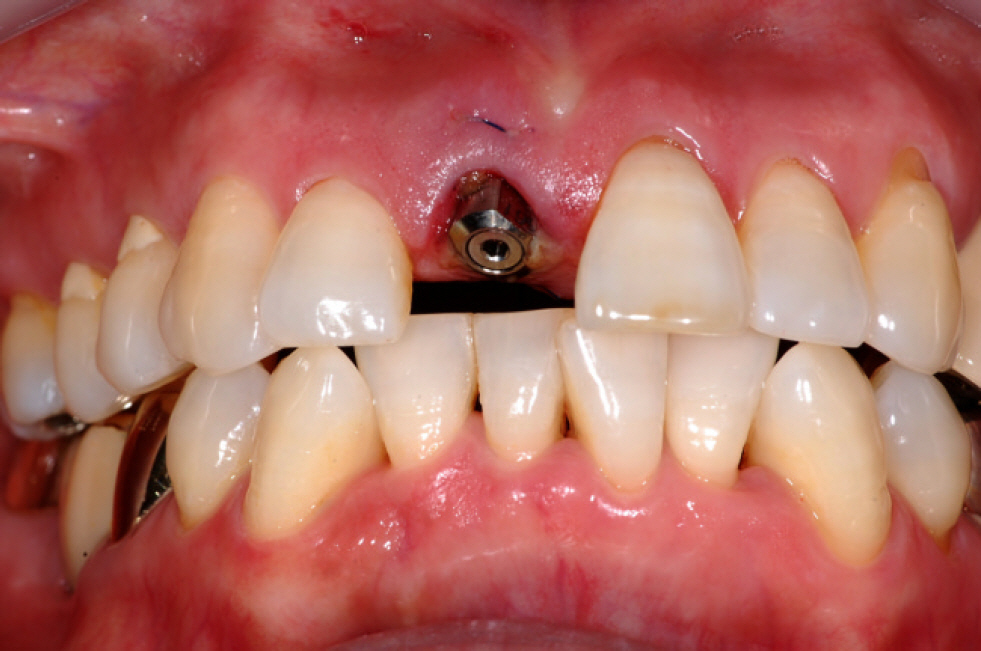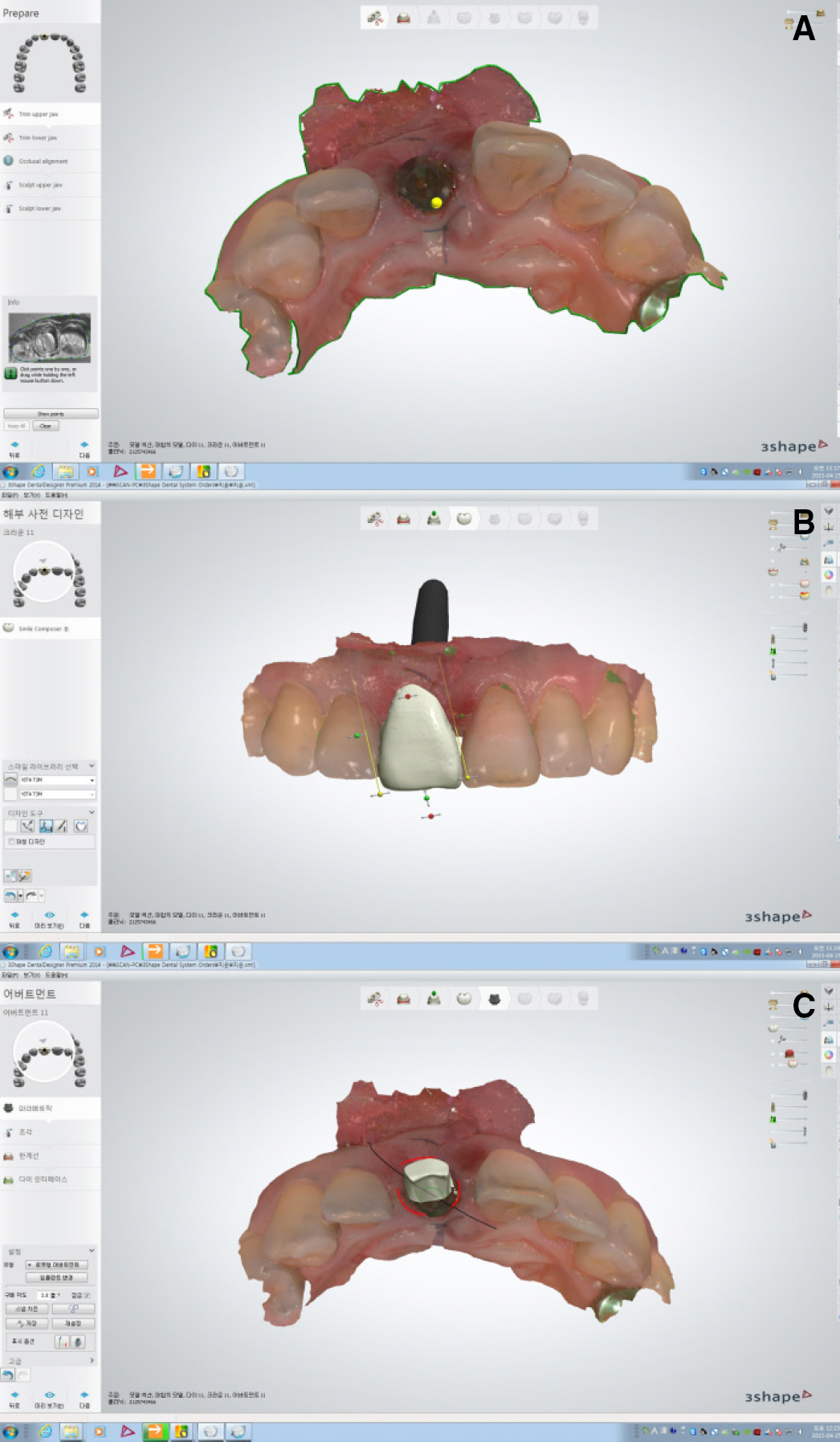J Korean Acad Prosthodont.
2015 Jul;53(3):234-243. 10.4047/jkap.2015.53.3.234.
Digital intraoral impression for immediate provisional restoration of maxillary single implant: A case report
- Affiliations
-
- 1Department of Prosthodontics, Sun Dental Hospital, Daejeon, Republic of Korea. sjogren6323@gmail.com
- KMID: 2195254
- DOI: http://doi.org/10.4047/jkap.2015.53.3.234
Abstract
- Developing of digital technique, it is possible to fabricate implant prostheses for edentulous area using intraoral 3-dimentional information throughout implant diagnosis and treatment process. It is being changed that from the method using CAD/CAM, producing prostheses by model scanning after conventional impression and model processing, to the method of fabricating implant provisional restorations and customized abutments by digital impression after connecting digital impression copings (scanbody) and implant fixtures without models. But, this digital method has not been actively used for implant prostheses not yet. Specially, it is short of intraoral digital impression cases for immediate provisional restorations of the maxillary anterior implants. The gingival contour impression of maxillary anterior area is very important for esthetic restorations. Accordingly, in this case report, the using a digital impression coping (scanbody) and digital impression by CEREC Omnicam (Sirona, Bensheim, Germany) or Trios (3shape, Copenhagen, Denmark) were introduced for immediate provisional restorations in 3 cases needed a single implant restoration in maxillary anterior area. The clinical results were satisfactory on the convenience and accuracy of digital impression technique and the good esthetics of final restorations.
Keyword
MeSH Terms
Figure
Reference
-
1. Duret F, Blouin JL, Duret B. CAD-CAM in dentistry. J Am Dent Assoc. 1988; 117:715–20.
Article2. Leinfelder KF, Isenberg BP, Essig ME. A new method for gen-erating ceramic restorations: a CAD-CAM system. J Am Dent Assoc. 1989; 118:703–7.
Article3. Nayyar N, Yilmaz B, McGlumphy E. Using digitally coded healing abutments and an intraoral scanner to fabricate implant-supported, cement-retained restorations. J Prosthet Dent. 2013; 109:210–5.
Article4. Begum A, Ahmed R, Islam MS. Digital Impression. City Dent Coll J. 2012; 9:31–4.
Article5. Yoo JY, Kim YG, Lee BS, Kwon YD, Choi BJ, Kim YR. Immediate implant placement after extraction of retained deciduous teeth and impacted canines: Report of a case. J Korean Assoc Maxillofac Plastic Reconstr Surg. 2009; 31:330–3.6. De Rouck T, Collys K, Cosyn J. Immediate single-tooth implants in the anterior maxilla: a 1-year case cohort study on hard and soft tissue response. J Clin Periodontol. 2008; 35:649–57.
Article7. den Hartog L, Raghoebar GM, Stellingsma K, Meijer HJ. Immediate loading and customized restoration of a single implant in the maxillary esthetic zone: a clinical report. J Prosthet Dent. 2009; 102:211–5.
Article8. Mijiritsky E1, Mardinger O, Mazor Z, Chaushu G. Immediate provisionalization of single-tooth implants in fresh-extraction sites at the maxillary esthetic zone: up to 6 years of follow-up. Implant Dent. 2009; 18:326–33.
Article9. Hong YS, Park EJ, Kim SJ, Kim MR, Heo SJ, Park JM. Customized abutment and screw-type implant prostheses after cementation based on the digital intraoral impression technique. J Korean Acad Prosthodont. 2012; 50:67–73.
Article10. Lin WS, Harris BT, Morton D. The use of a scannable impression coping and digital impression technique to fabricate a customized anatomic abutment and zirconia restoration in the esthetic zone. J Prosthet Dent. 2013; 109:187–91.
Article11. Kim Y, Oh TJ, Misch CE, Wang HL. Occlusal considerations in implant therapy: clinical guidelines with biomechanical rationale. Clin Oral Implants Res. 2005; 16:26–35.
Article12. Kan JY, Rungcharassaeng K, Lozada J. Immediate placement and provisionalization of maxillary anterior single implants: 1-year prospective study. Int J Oral Maxillofac Implants. 2003; 18:31–9.13. Neale D, Chee WW. Development of implant soft tissue emergence profile: a technique. J Prosthet Dent. 1994; 71:364–8.
Article14. Shadid R1, Sadaqa N. A comparison between screw- and cement-retained implant prostheses. A literature review. J Oral Implantol. 2012; 38:298–307.
Article15. Guichet D. Digitally enhanced dentistry: the power of digital design. J Calif Dent Assoc. 2015; 43:135–41.
- Full Text Links
- Actions
-
Cited
- CITED
-
- Close
- Share
- Similar articles
-
- Immediate loading of mandibular single implant by using surgical guide and modeless digital prosthesis: a case report
- Restoration of implant-supported fixed dental prosthesis using the automatic abutment superimposition function of the intraoral scanner in partially edentulous patients
- Integration of Intraoral Scanner-based Mandibular Movement Data for An Anterior Single-implant Restoration
- Outcome Evaluation of an Immediately Placed Maxillary Anterior Single-Tooth Implant Using Objective Esthetic Criteria: Case Report
- Immediate restoration through gingiva conditioning of maxillary anterior implant installed labially: A case report

